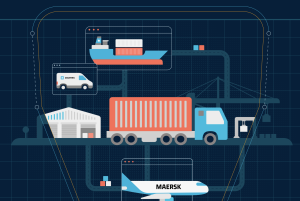As emerging economies place successful, fast-growing, and culturally different companies onto the global stage in the coming decade, the process of selecting suppliers will become riskier, more complicated, and more fluid. This is the consensus among Procurement Executives who responded to an Ariba survey on Procurement in 2020.
“I believe we are going to see a significantly more diverse and complicated business landscape emerge in the coming decade,” observes Tim Cummins, President and Chief Executive Officer of the International Association for Contract & Commercial Management (IACCM).
“We are already beginning to see some of that complexity as organisations from emerging economies — Mexico, India, the Philippines, for example — succeed at moving into the global trading arena.
“These organisations are not coming to the global economy with the same business models as Western organisations,” Cummins notes. “Their expertise, for example, is quite often around building brands in emerging markets. In a sense, they are attacking the big Western players from very different directions.
“Many of the emerging global players are, in fact, conglomerates. And, while that business model went out of fashion some years ago in the West, it appears to be giving newer global players some very real advantages particularly in areas like innovation and cost control.”
For procurement, Cummins suggests this will dramatically affect commercial relationships with suppliers. “The range of supplier choices is going to get much broader, so we are going to have to become a lot more sophisticated in our supplier discovery and selection processes. We will still look for opportunities to lower costs, but I believe we will become far more focused on quality and innovation.
“We will also emphasize versatility, agility and flexibility in our trading relationships, dispensing with older business models in which we sought to guarantee supply or prices in return for committed procurement timeframes or spend volumes. For example, the whole idea of long-term commodity supply agreements has already disappeared from global metals markets.”
“the whole idea of long-term
commodity supply agreements has already
disappeared from global metals markets”
Greater supply-market complexity and less stability in trading relationships are going to demand more creativity and different thinking from procurement, Cummins suggests. “Procurement will need to rethink how it hedges and manages volatility and risk. With some suppliers, it is going to mean we go for a greater degree of collaboration. And I think—for some businesses—the trend may lead them back to more vertical or horizontal integration. We have seen it happening already in areas like mining.
“As we become more sophisticated in our supplier selection processes,” Cummins adds, “we will get much better at understanding the importance of things like cultural fit between organizations. Far too many sourcing decisions have been made on a cost-only basis without considering the importance of cultural fit. The result has been far too many important relationships that fail.”


























